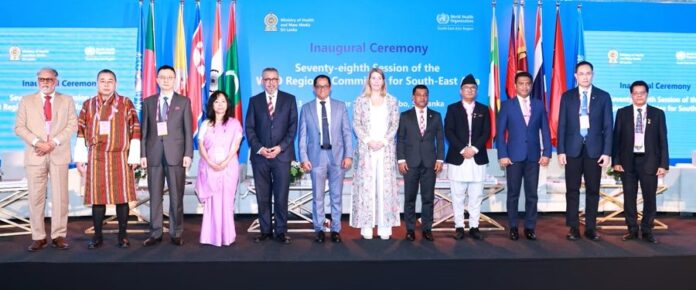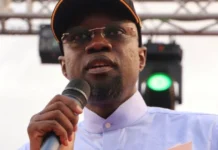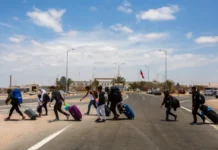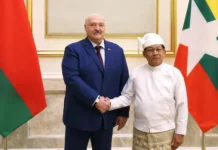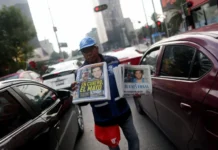By Michelle Ndaga
Health ministers from 11 South-East Asian nations convened on October 13, 2025, in Colombo for the 78th session of the WHO Regional Committee for South-East Asia.
The three-day meeting, hosted by Sri Lanka’s Health Minister Nalinda Jayatissa, aims to forge stronger regional cooperation in the face of mounting health crises.
During his opening remarks, WHO Director-General Tedros Adhanom Ghebreyesus urged participant countries to “reset global health strategies” amid uncertainties posed by climate change, pandemics, and widening inequities. He emphasized that resilient health systems and equitable access to care must be central to future planning.
Key topics on the agenda include strengthening universal health coverage, managing healthy ageing, controlling tobacco and novel nicotine products, expanding emergency funding mechanisms, and tackling antimicrobial resistance. The WHO secretariat’s working documents also underscore the importance of aligning regional actions with broader global commitments.
Ministers are expected to adopt resolutions and regional frameworks to combat noncommunicable diseases, prepare for future pandemics, and coordinate responses to emerging health threats exacerbated by climate change. The session also includes review of progress on previous resolutions and assessments of the regional emergency health fund (SEARHEF).
One notable issue shadowing the meeting is the temporary leave of Saima Wazed, the head of WHO’s South-East Asia Regional Office, following corruption allegations in Bangladesh. During her absence, WHO has appointed a Geneva-based official to act as the interim head of the regional office.
With health challenges growing in scale and complexity, this meeting is widely viewed as pivotal. Its outcomes could significantly influence how South-East Asian countries collectively respond to pandemics, climate-driven health shocks, and persistent inequalities in care.









